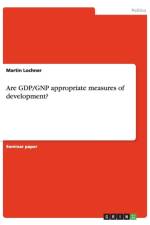- Bietet der Norden ein Loesungsmodell fur das europaische Demokratiedefizit?
von Martin Lochner
17,95 €
Studienarbeit aus dem Jahr 2006 im Fachbereich Politik - Internationale Politik - Region: Sonstige Staaten, Note: 1.3, Friedrich-Alexander-Universität Erlangen-Nürnberg (Institut für Politische Wissenschaft), Veranstaltung: Politik in nordeuropäischen Demokratien, Sprache: Deutsch, Abstract: Ein im Zusammenhang mit der Vertiefung der Europäischen Union häufig genanntes Problem ist das des Demokratiedefizits. In der Tat dürfte außer Frage stehen, dass im Verlauf der letzten Jahrzehnte der Rat der Europäischen Union bzw. der Europäische Rat zunehmend Machtbefugnisse im Bereich der Legislative akkumuliert hat, die damit umgekehrt den nationalen Parlamenten entzogen wurden (Maurer 2002a: 37). Zwar wurden gleichzeitig auch die Befugnisse des Europäischen Parlaments erheblich ausgeweitet, jedoch keineswegs so stark, dass es den Verlust an demokratischer Legitimation kompensieren könnte, der durch den Bedeutungsverlust der nationalen Parlamente entstand (Maurer 2002a: 368). Neben den offensichtlichen Handlungsoptionen wie einer Rückverlagerung von Politikfeldern von EU-Ebene aufnationale Ebene oder einer weiteren massiven Aufwertung des Europäischen Parlaments gibt es grundsätzlich auch die Möglichkeit, dass die nationalen Parlamente ihren Bedeutungsverlust in legislativer Hinsicht durch eine Verstärkung ihrer Kontrollfunktion gegenüber ihrer jeweiligen Regierung kompensieren (Maurer 2002a: 214). Vor diesem Hintergrund erscheint es sinnvoll, sich der Frage zuzuwenden, wie es den Parlamenten der nordischen EU-Mitglieder, nämlich Schweden, Finnland und Dänemark, gelungen ist, durch entsprechende Ausweitung ihrer Kontrollfunktion gegenüber ihren Regierungen, ein demokratisches Defizit zu vermeiden oder doch zumindest vergleichsweise gering zu halten. Die folgende Arbeit wird zeigen, dass es den Parlamenten dieser drei Mitgliedsstaaten gelungen ist, erheblichen Einfluss auf Entscheidungsprozesse der Europäischen Union zu erreichen und zu erhalten. Nach einer Darstellung dieser starken Stellung werden die Gründe hierfür erörtert und schließlich ein Vergleich zwischen den untersuchten drei nordischen Parlamentengezogen. Obwohl die anderen beiden nordischen Staaten, Norwegen und Island, keine Mitglieder dereuropäischen Union sind, wäre es durchaus naheliegend, diese in die vorliegende Arbeit miteinzubeziehen, da beide Länder Mitglied des Europäischen Wirtschaftsraums sind. Norwegenist darüber hinaus auch dem Schengener Abkommen beigetreten und ist faktisch assoziiertesMitglied der GASP (Claes 2004: 264). Aus diesem Grund muss etwa Norwegen etwa 95%des europäischen acquis communautaire übernehmen (Sverdrup 2004: 26). Zweifellos istdaher auch Norwegen, und in geringerem Maße Island, vom Prozess der der Europäisierungbetroffen.




